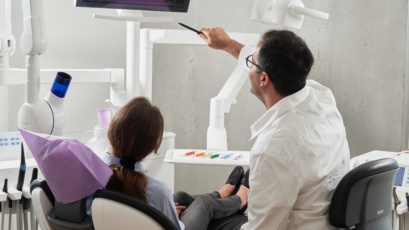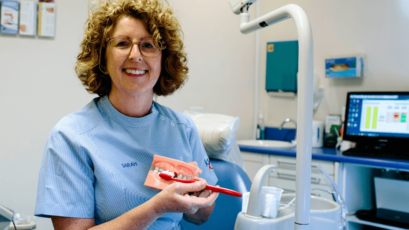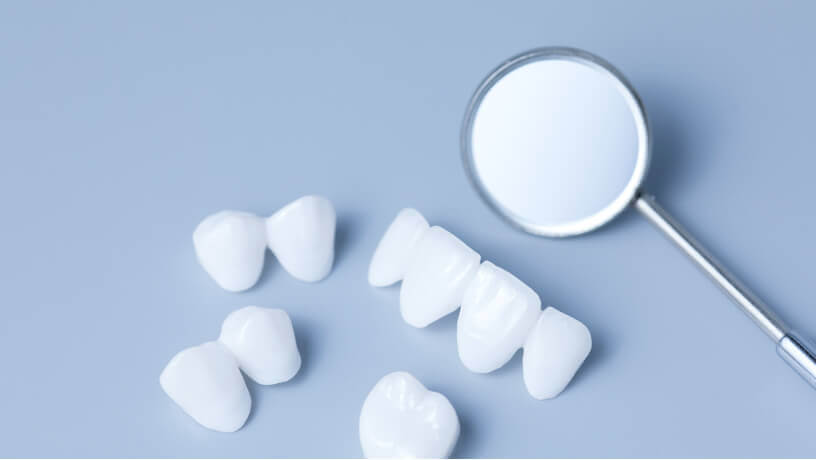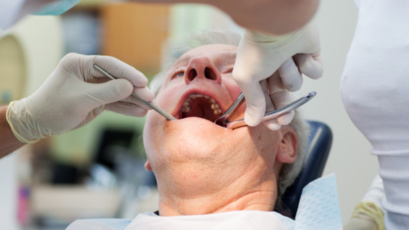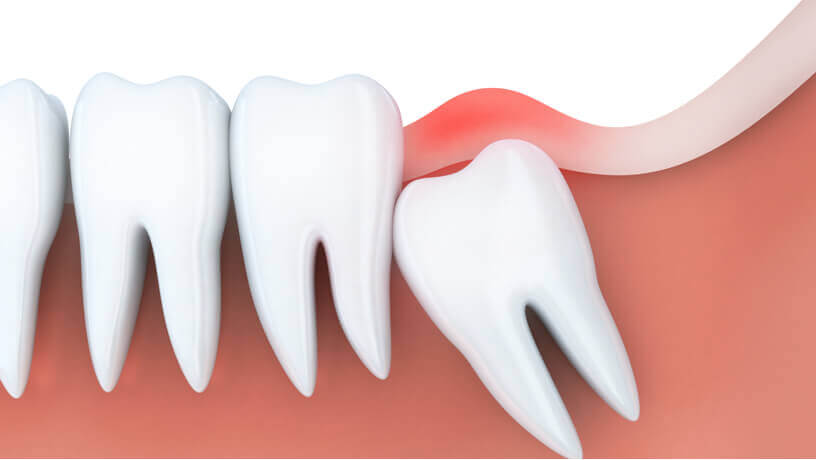Preventive Dentistry
So many oral health problems you are likely to develop can be avoided
with preventive dentistry. Not only do you save yourself the inconvenience
of major dental treatments, but you also save money too. Plus, it won't put
added strain on your relationship with the dentist!
Preventive Dentistry
Visit us for your preventive dental care needs.
Preventive dentistry is the key to maintaining optimal oral health. With this, you prevent future dental issues through routine oral checkups and treatments at your local dentist. Of course there are things you can do at home for ongoing oral health.
So if you’re still in doubt as to whether or not you need preventive dentistry, just chat to one of our friendly team about what it could mean for you.
What does preventive dental care entail?
What Is Considered Preventive Dental Care?
Preventive dental care or preventive dentistry is the prevention of oral disease through routine checkups. It has to do with general and specific dental care to prevent or detect early oral problems. This goes a long way in promoting your oral hygiene.
Remember, however, that preventive dental care begins with you. By having a healthy daily oral routine, you can prevent tooth decay, gum disease, and cavities.
For the best preventive dental treatment, you should combine a home routine with visits to the dentist. This is because there are certain examinations you cannot cover on your own. Inspections like X-rays, sealants, and so on, and this is what your dentists can help with.
In administering preventive dentistry, your dentist will consider if you have any health issues. Issues like mitral valve prolapse need to be treated with prophylactic antibiotics. Also, you’ll need antibiotics if you have a prosthetic heart valve or a history of endocarditis and so on.
How To Prevent Dental Problems At Home
Doing the following will help improve your oral health greatly:
- Brush your teeth at least twice a day, the last thing at night and sometime during the day.
- Brush using medium to soft toothbrushes with round-ended bristles.
- Replace your toothbrush every three months.
- Use toothpaste with fluoride in it. Adults are to use toothpaste that contains 1350 to 1500 ppm (parts per million) of fluoride. On the other hand, children from one to three years should use toothpaste with 1000ppm of fluoride.
- Let the fluoride stay in your mouth a while after brushing by not rinsing it out immediately. It will leave your teeth feeling fresher, and fluoride helps prevent tooth decay. You can, however, spit it out.
- Always floss.
- Use a mouthwash. This is because most mouthwashes contain antibacterial, which helps prevent gum disease. You should not use it immediately after brushing your teeth; you can use it after a meal.
- Cut down on sugar and fizzy drinks.
- Use a straw when taking a fizzy drink to reduce its contact with your teeth.
- Cease from smoking because it stains the teeth and can cause other periodontal and body-related diseases.
- Include foods rich in vitamin C, like leafy greens, in your diet.
- Use mouthguards to protect your teeth if you’re involved in contact sports.
How To Prevent Dental Problems At The Dentist
You should get a check up from your dentist at least once every 6 months.
- Your mouth and gums will be checked to determine what treatment you need.
- Afterwards, the dental team will scale and polish your teeth. This means that they’ll remove any plaque or tartar.
- The dental team will show you the best way to brush and floss to get rid of plaques.
- They’ll also recommend the best oral products that are suitable for you to use.
- They’ll also inspect your fillings to ensure they are in good condition.
- Where a tooth is likely to fall off or get broken, your dentist will recommend treatment to strengthen it.
Major preventive dental treatments carried out at the dentist include:
- Teeth Cleaning: This is done to remove calculus or tartar. Dentists use specialised tools to remove tartar as regular brushing cannot remove them.
- Oral Cancer Screening: The gums/ soft tissue in your mouth will be inspected for any changes that can lead to oral cancer.
- Dental Sealants: Sealants help smoothen the tooth’s surfaces, making them easier to clean. This helps prevent youth decay, especially in the areas that are hard to clean.
- X-rays: Where an issue is detected, your dentist will carry out an x-ray to examine the severity of the problem. From the results, they will prescribe a treatment plan for you.
- Education on proper oral hygiene: Many oral issues are caused because we don’t know how to take care of our mouth properly. Your dentist can help with that by educating you on oral hygiene. This includes teaching you how to brush properly and recommending other healthy dental care practices for you.
- Fluoride treatment: This involves applying fluoride over your teeth like a gel, foam or varnish to reduce the risk of cavities and tooth decay.
Dental Prevention For Children
Children need preventive dental care the most out of anyone! It’s usually best to start early to ensure healthy teeth and gums for life.
You should help carry out proper oral hygiene with your kids and teach them independent oral hygiene early. While your children will require your assistance with brushing their teeth until they reach 7 or 8 years old, we recommend that you continue to supervise in the years to come.
You should also take your children to see the dentist from a young age so that it becomes normal practice in their lives.
In fact, some dentists recommend a dental check-up before a child’s first birthday. This is to ensure their gums and teeth are in good condition and position.
Benefits Of Preventive Dental Care
You’d be surprised how many health-related problems are caused by bad oral hygiene. With preventive dentistry, early detection of dental issues can help stop other health-related problems. Medical conditions like diabetes, heart disease, osteoporosis, certain cancers and more.
Another benefit of preventive dental care is that it helps you save money! Dental prevention truly is better than cure, even for your pocket. Trust us, you will spend less on preventive treatment than you will spend on restorative treatments.
Preventive dentistry also helps prevent enamel loss, tooth decay, cavities, periodontitis, gingivitis, and the like. Also, by practising preventive dental care, you get to build and maintain healthy oral habits. At Knight Street Dentists, your smile and oral health are our priority.
Ready to ensure you never have to worry about losing your smile?
We’re human & we’re here to help
Fill out this contact form and we’ll be in touch

